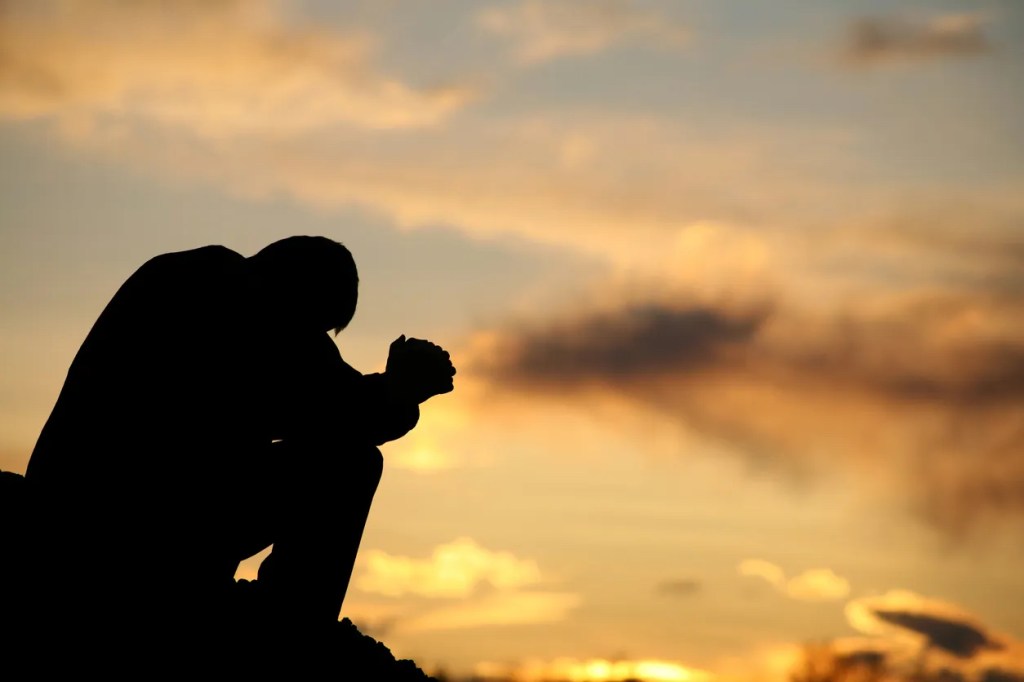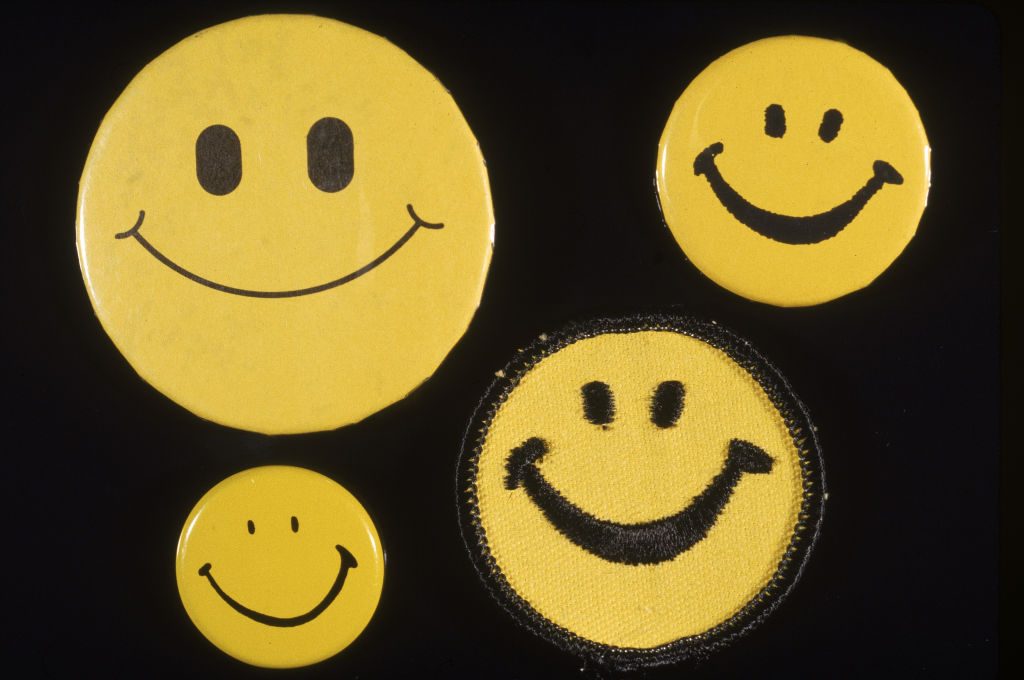It is the question of questions for most believers, let alone countless others either drawn to religion or repelled by it. Our planet is steeped in suffering and cruelty. If we are lucky or wealthy enough to have avoided first-hand experience of these scourges, they are nevertheless on plain view at one or two removes from our doorsteps. Yet various major creeds — especially Judaism, Christianity and Islam — teach that the world owes its existence to a creator who is all-loving as well as all-powerful. Standing in a line of thinkers reaching back to Epicurus, David Hume famously sums up the challenge with disarming bluntness:
Is God willing to prevent evil, but not able? Then he is not omnipotent. Is he able, but not willing? Then he is malevolent. Is he both able and willing? Then whence cometh evil? Is he neither able nor willing? Then why call him God?
If people of faith aren’t chastened by Hume’s reasoning, they certainly ought to be. Anyone who supposes that a neat answer can be given to so monumental a conundrum has failed to grasp its scale. Serious replies from across the spectrum should therefore be multilayered and tentative in principle. Caution need not imply confusion or faint-heartedness, however. Here are a few counter-thoughts in brief. Yes, Hume fires well-aimed darts at what looks like religion’s weak flank. We should hardly expect less from a father of modern atheism. But what about his own soft underbelly? If all God-talk is based on a mirage, then life has no ultimate meaning whatever. And is that drastic inference fair or over-hasty?
The heart of the matter lies here, one stage back in the argument. In other words, we will make little progress in discussing God, evil and suffering without engaging the prior question of whether the world has a creator — and therefore presumably a goal. Many wisdom traditions answer with a resounding “Yes.” In headline terms, they tell us that nature is not only discordant on some levels. It also makes sense, interlocks, hangs together. Viewed overall it can be justly described as more harmony than chaos, which is why a scientist as distinguished as Freeman Dyson can write that “to worship God means to recognize that mind and intelligence are woven into the fabric of our universe in a way that altogether passes our comprehension.”
;768:[300×250,336×280,320×100];0:[300×250,320×100,320×50]”]Several vital forms of awareness may be inferred from this. One holds that we should move through the world in somewhat the same way as we move about in someone else’s home, noticing that we are the guests and someone else is the host; another that the purpose or end of our time on earth is moral growth. A specifically Christian framework has been honed as follows. Human beings are organisms, with natural capacities and needs. The attainment of those needs and capacities is happiness, in a sense widely accepted across periods and cultures. Happiness, however, also implies a priority that can be underplayed in other systems of thought (sacred and secular), namely self-sacrificial love. Self-surrender and self-fulfillment coincide; service is perfect freedom. Hardship will certainly strike along the way. But endurance is a spur to salvation in a longer perspective — both in time and beyond time. Jesus taught as much before living out what he preached. These themes resonate yesterday and today in the example set by a cloud of witnesses inside and outside the visible Church. Allied ideas can be found in other global faiths: in Judaism and Islam, in Sikhism, in Bhaktic and Vedantic Hinduism.
The alternative to Dyson’s view is the thin metaphysical vision of Stephen Hawking, who thought that human beings and other life forms are no more than “chemical scum” in a purposeless world. In my view there are muscular scientific — let alone religious — reasons for judging Dyson to be right and Hawking wrong. So far from closing down the question of God’s existence, Dyson and a contemporary scientist of great stature such as Iain McGilchrist thus succeed in reopening it.
There are muscular scientific — let alone religious — reasons for judging Dyson to be right and Hawking wrong
But others have a different problem. The Spectator’s economics editor Kate Andrews writes movingly in the UK magazine’s Christmas issue about believing in a higher reality, but not deriving any comfort from such belief. Tragedy struck early in her life through the loss of her mother. Long ago a wise Christian pastor told me that you don’t offer clinical “explanations” to people enduring acute grief. At the time he was supporting the parents of a child dying of leukemia: his ministry chiefly involved getting alongside them in personal and practical ways.
More general reflection is not without value, however. There are things thoughtful Jews, Christians, Muslims can and perhaps should say with more vigor. First, pain cannot be avoided where physical laws have their own integrity. A material world involves inbuilt constraints. St. Thomas Aquinas observes that things exist by surviving — namely winning the favor of their environments — but there is no chance of harvesting all that benefit at once without any associated rupture. In Aquinas’s view the universe as a whole is better for including some things that cease to survive. Fire must consume air in order to burn, deer must eat saplings, a tiger’s good is a buffalo’s evil. There are ways of improving the situation so as to be more even-handed, but to have the universe without any of this destruction is impossible.
;768:[300×250,336×280,320×100];0:[300×250,320×100,320×50]”]Aquinas adds candidly that as a result of bringing about world order and harmony, God indirectly causes natural evils and afflictions. Not even divine omnipotence can generate a finite cosmos in which natural evils will not be a concomitant of good. Knowing this, God chose to create, so can be held responsible for natural evils. Suppose we had the omnipotence, though. Would we decide to destroy life because of those concomitant evils? The answer for Aquinas is no. Therefore blaming God is not viable. The true course for us is to accept our environment and assume our own share of the responsibility for it. We could try taking on one of the main tasks for which Genesis suggests Adam and Eve were made: to tend and cherish the earth as good stewards.
Evil is also considered unavoidable in a setting where flawed human beings are free to become better or worse. When the Jewish thinker Jonathan Sacks confronted the question of where God was at Auschwitz, he said that God had been there “in the words ‘You shall not murder.’ He was there in the words ‘Do not oppress the stranger,’ in the words ‘Your brother’s blood is crying to me from the ground’.” Rabbi Sacks immediately added that the Holocaust was not in and of itself a new challenge to faith. Exactly the same question could have been asked about Cain and Abel, among innumerable other disasters. Sacks said:
Why did God let Cain kill his brother? And the truth is, that is the Jewish equation. We believe that God gave us freedom. It is the most fateful decision he made in the entire universe. Freedom means that if we do well, we are little lower than the angels. But if we do bad, we are lower even than the beasts. That is our world. God teaches what’s good and what’s evil, what we should do and what we should not do. But God does not intervene to force us to do good, or to prevent us from doing evil.
Here is a theme to run with for anyone drawn to religion, Abrahamic monotheism especially. Among the virtues of the American scholar Eleonore Stump’s monumental work Wandering in Darkness is the author’s willingness to tackle suffering at a psychological narrative level, rather than just focusing on more abstract generalities. Concentrating on biblical examples, she points to how one person after another — Abraham, Samson, Job, Mary of Bethany — is enlarged by challenging ordeals. Stump is not claiming that God deliberately inflicted pain on these figures. She grasps the problem with “soul-making” approaches to suffering which imply that our lives are neat obstacle courses designed to evince ever-greater ethical progress. Peddling that message to people facing all manner of tribulation would be contemptible. By presenting “spiritual” rather than philosophical arguments, Wandering in Darkness opens a door for individuals to put their own stamp on their experience. Mary and Martha pray for Lazarus to be saved, yet he dies. That tragedy still serves to deepen relations between the sisters and Christ before their brother is raised. Samson brings suffering on himself in some sense, but has a redemptive experience at the end of his life. On regaining his strength he prays properly for the first time, as opposed to making demands or seeking to glorify himself.
Narrative arguments like these are powerful for the very reason that they are not saying “God is bringing about such-and-such a person’s good, and that’s why they are facing torment.” Instead, Stump’s presentation allows a person to recognize that his or her circumstances can in the end be put in a good context. The heart’s desires can be reconfigured or “refolded”; seeds of hope can take root. This is not meant to take away from the “execrable and lamentable” nature of suffering. But Stump nevertheless argues that “the change made by encompassing all the desires of a person’s heart within a deeper desire for God works a transformation not only as regards the character of the heartbreak over the loss of other heart’s desires, but also as regards the very nature of the loss and the possibilities for the redemption of it.”
Dire statistics about pain do not point ineluctably towards religious skepticism or atheism alone
;768:[300×250,336×280,320×100];0:[300×250,320×100,320×50]”]
To sum up: dire statistics about pain do not point ineluctably towards religious skepticism or atheism alone. Illness or trauma can be interpreted in different ways. Several years ago I lost a very dear friend to stomach cancer. Richly productive in several spheres, he also enjoyed good health until his mid-eighties. By contrast, his aunt had had a catastrophic stroke in her youth, leaving her paralyzed for the remaining six decades of her life. She nevertheless lived and died a Christian. Eva Kor, a Jewish survivor of Auschwitz, later befriended and forgave her ex-Nazi guard, describing the experience as immensely liberating.
But what of the vast quantities of undeserved suffering — whether arising from illness, accident, or iniquity — that are not (and cannot be) a gateway to spiritual refinement? An acquaintance of mine was repeatedly raped as a schoolboy. The Book of Revelation (21:4) talks of a time when God will wipe away all tears. Yet in many eyes there is no imaginable settling of spiritual accounts that will ever make things right for someone violated in childhood. Deepening this quandary from the fictional realm, Ivan Karamazov famously asks whether the agonizing death of a child torn limb from limb by dogs would be an acceptable price for the bliss of everyone else. Many would accept his protestation that such a price is too high.
Are we simply left with a stalemate involving subjective assessments as to whether levels of suffering and evil are held to be either unacceptable — perhaps grotesquely so — or as high as they need to be in a material world containing autonomous agents such as ourselves? This is the mire into which discussion of theodicy (providing morally sufficient reasons God has for allowing suffering) can all too easily slip. When less self-aware Christians give implausible or insensitive “explanations” of suffering in terms of divine punishment or the inscrutable will of God, or frustrated atheists direct anger at God for not intervening — and sometimes for not existing — it is clear that patient sifting at various levels of understanding is called for. In clearing the ground, I want to outline an answer to Ivan in a bit more detail while also conceding its limits and a need to dig deeper.
One vital opening point is that granting the incompleteness of an argument should not be seen as implying that it lacks worth. If we bring a model derived from a computer program or the natural sciences to the problem of pain, we will end up in trouble. If on the other hand someone engaging with the subject says that he or she has certain core beliefs, and an intimation of how they might hang together — or certain tools that seem productive in what will probably be an abiding quest — then perhaps this path will be far more appropriate to the matter in hand.
Does the landscape perhaps look a little different in this light? Well, only the chronically insensitive — namely those wedded to an arithmetical model of doing things — suppose that horrors including the slave trade, the caste system and the gulag can ever be retrospectively vindicated in a straightforward way. The same applies to the death from dysentery of a baby in Africa today. Pain is not “God’s megaphone to the world,” in the notorious expression — later taken back — of C.S. Lewis. Once more, there is a limit in principle to what can be achieved by rationalistic discourse. The ground on which the argument develops will be moral and practical to a high degree. It can never be circumvented by logic alone. Ask reflective Jews, Christians or Muslims how to square the circle, and they are likely to insist that the resources of faith do not provide a demonstrative solution to questions about the volume of suffering in the world, but rather a resolve never to abandon the way of love. The church calendar is nothing if not realistic in this respect. The second day of Christmas commemorates the death of Stephen, the first Christian martyr; the fourth day marks the slaughter of the Holy Innocents.
I have recently published a brief book on the theodicy called The Hardest Problem. The aim was to revisit terrain covered by C.S. Lewis for the benefit of a new generation. One of my most moving encounters was with a priest caring full time for his wife, who lives with a severe disability. Knowing that he had previously served as a school chaplain, I asked how he handled students’ questions about whether God responds to petitions for help. Many people plainly seek divine intervention on all sorts of levels — from sending rain for crops to aiding the chronically sick.
“My response was twofold,” he replied. “Firstly that I would prefer the kind of prayer that offers up worries about the drought to the kind that asks God to turn on the tap. There’s a scriptural warrant for that kind of prayer (see 1 Peter 5:7: “Cast all your anxiety on him because he cares for you”) and as a spiritual director I encourage such explicitness partly because it helps to externalize the concern or worry. Secondly I made the obvious but important point that what might help a drought-stricken farmer might be a disaster for the householders down the valley whose homes could be flooded if his prayer were answered. My grandmother’s reproof of selfishness — “You’re not the only pebble on the beach” — also got quoted. I don’t expect the universe to be run for my personal benefit or convenience. I believe in God, not in Santa Claus or the Tooth Fairy. As regards the issue that most faces me personally with questions regarding theodicy — [my wife’s] neurodegenerative condition — my prayer is not for a healing miracle but for the spiritual resources we both need to deal with it. Thus far, I find those prayers are answered.”
;768:[300×250,336×280,320×100];0:[300×250,320×100,320×50]”]These insights have been transposed into a related key by Rowan Williams. Having written his biography, I used some thoughts he voiced many years ago as an epigraph:
I believe that creation is a good thing because of that long-term purpose which is the sharing of fellowship with God, the gift of the divine life and the divine nature to creatures. But to say that creation is good overall, I think, cannot commit us to adding, “And everything that happens must be for the best.” Not only is that often not true; even when we can make the best of a bad situation, that doesn’t mean it had to happen or that it was good that it happened.
I look here to those who have written out of the very dark places of the modern experience. One thinks of somebody like the Jewish author Etty Hillesum writing from the Nazi death camps, or on the Christian side Mother Maria Scobtsova, a Russian nun who died at Ravensbrück, and what I understand them to be saying is not, Well, it’s all OK, there’s a reason for my being here, but, rather, Here is something which for all its utter, unqualified horror, I can by God’s grace give a future to, open up to God. And in that sense, I think, the Christian looking back over a life containing suffering and tragedy and trauma can say that it has all been drawn together by grace, rather than that it’s all vindicated or justified.
This article was originally published on The Spectator’s UK website.


























Leave a Reply